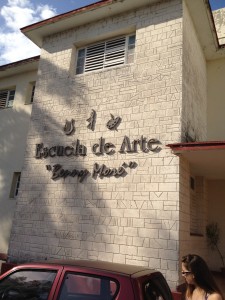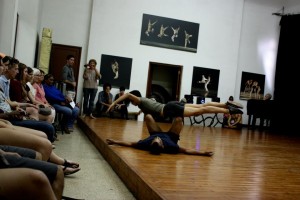Cuban Identity
April 20, 2012 by emburke
The idyllic version of the United States is one in which all Americans have equal access to opportunity, financial success, and ultimately happiness. However, this is often not the reality. In the United States general lifestyle can often be predicted by just a few key factors that constitute any given person’s lifestyle throughout their life. Life is first and foremost anchored in the socio-economic class the given individual is born into. From this point, with few exceptions, access and quality of education is highly influenced by this starting condition. From quality and extent of education the leap can be made to predicting the general type of profession the individual may engage in once education has been completed, and finally, the socio-economic class the individual will die in. Thus, in America, factors of beginning socio-economic status, education, and profession heavily influence the potential for socio-economic mobility, as well as social identity.
While in Cuba, I found myself struck by the missing presence of any apparent relationship among these factors of socio-economic status, education, and profession that Americans are so accustomed to linking to one another. From the very outset the first condition of identity, socio-economic status of birth, is significantly diminished, as the socialist state in Cuba demands a society built on class equality. So, while it can be argued that certain class distinctions still develop within society, they tend to be significantly less distinguished than class differences in the United States. Next, the link to access to education based on socio-economic standing is similarly demolished. The presence of universal education in Cuba has resulted in a system in which the entire Cuban population has nearly equal access to the same level of education. Distinctions between public and private educational institutions are not permitted, and thus the disparities between the quality of education provided by public and private institutions, an issue that is largely contingent on matters of affluence, are not permitted within the system. Additionally, while each individual has the freedom to choose the extent to which he or she pursues an educational path, through to the university level or not, education remains accessible to all at every level. The one existing limitation to access are entrance exams to higher education, but considering these limitations exist based on merit and not socio-economic status, this is an acceptable limitation to enforce as it is largely still left to the prerogative of the individual to pursue education or not. The final link in the chain of identity formation that is broken in Cuba is the connection between education and profession. While many people go to school to become educated in a particular field, and then pursue a career in that area, the connection between education, profession, and financial success has been largely subverted in Cuba. Social identity seems to rarely be based on professional identity as profession has significantly less impact on achieved socio-economic standing. While traditionally high-income professions are relegated to the realm of a state salary, jobs in the tourist industry that arguably require significantly less education and specialization than that of a doctor or professor, are associated with much higher levels of income.
As we traveled around Cuba, I encountered individuals working in the tourist industry over and over again, many with very similar stories. The example of our own tour guides attests to the conditions around professions in Cuba. Adriana, a tour guide in training, had completed study in ten different specializations at the university level, previously worked at the university as an expert in foreign relations, and had decided to pursue a career as a tour guide rather than to continue work in her field of specialization in order to make a better living. I heard similar testament to conditions in Cuba that bred these types of decisions from the opposite perspective as well. We visited a modern dance company in Havana, of which all the members had trained in Cuba’s highly developed system of art schooling. Speaking with the young twenty-something dancers after the performance they told stories of sacrifice. One young dancer explained that while each of the company members had the skills to work as dancers in the tourist industry and to make nearly triple their current pay, they had each made the choice to sacrifice a higher income in the interest of the integrity of their art form. While they struggled to provide for themselves on their state salaries of only 10 CUC a month they defended their decisions, saying that they would rather struggle to survive off state salaries than to abandon their technique and training.
Thus, while identity is not based on profession or education, as both say little about where an individual stands, it is not to say that conflicts of identity do not exist. The Cuban system seems to have carefully crafted conditions under which no particular factor is capable of elevating any individual out of the one common social class to which all Cubans supposedly belong. However, the conflicts that have developed in today’s Cuba, a society with a deep and rigid divide between those individuals with access to work in the tourism sector, and those individuals who lack that access, have begun to create some of the divisions of class that may one day lead to the kinds of social conditions that permit a highly inequitable system of access to educational, professional, and financial success.
3 Responses to “Cuban Identity”
Leave a Reply
You must be logged in to post a comment.


life skills coaching
» Cuban Identity CUBAN TRANSITIONS
Effective Coaching
» Cuban Identity CUBAN TRANSITIONS
Career coaching
» Cuban Identity CUBAN TRANSITIONS